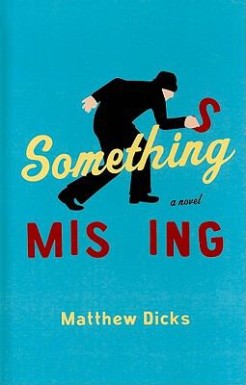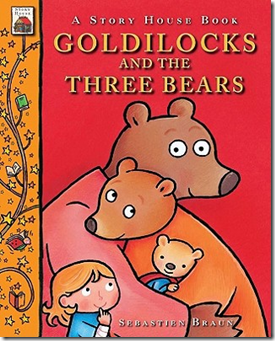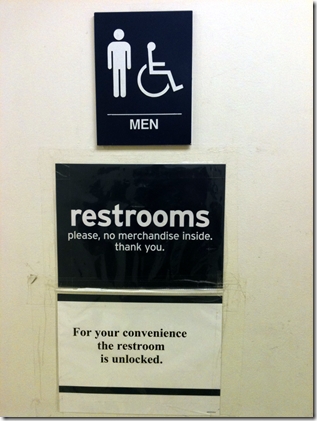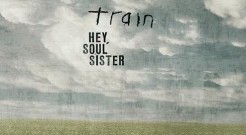I find it amusing when someone says that they work “in reception.” As if reception is a department akin to accounting or marketing or IT.
In truth, I’ve only had one person ever say this directly to me, but the phrase came up in conversation last week, and I’ve heard it referenced before. I find this seeming deliberate avoidance of the word receptionist slightly offensive to receptionists everywhere.
When I managed a McDonald’s restaurant, I didn’t tell people that I worked in food service management or that I worked for a Fortune 500 company.
I said, “I manage a McDonald’s restaurant.”
You’re a receptionist. There’s nothing wrong with that.
If you think there is, get another job.
In the process of writing what I thought would be a short post, I searched the phrase in reception online and returned thousands of hits.
Most interesting among them was a Wikipedia entry on receptionists that sounds like it was specifically written by a receptionist who loves his or her job a little too much.
It’s not your typical, passionless Wikipedia article. It reads like a sixth grade term paper. In terms of irony, obtuseness, and sheer entertainment value, it’s worth a read.
I’m equally fascinated by the photos of the two receptionists used for the entry.


Does this man (working at the Hampton Inn Suites based upon the data contained within the photo) and these two women know that their images have been used to help illustrate the meaning of the word receptionist?
Even more compelling:
Is the partially concealed woman in the second photo annoyed that her colleague has received front billing? Has she always been jealous of her prettier desk mate? Did this photograph sadly reinforced these feelings of inadequacy and self doubt?
Even better, are any of these people (I strongly suspect Mr. Hampton Inn Suites) the author of the Wikipedia entry?
I think it’s entirely possible.
Paragraphs like this would seem to support this theory:
At times, the job may be stressful due to interaction with many different people with different types of personalities, and being expected to perform multiple tasks quickly.
Sounds like someone complaining about his job to me. Perhaps a desk clerk at a busy Hampton Inn Suites in New York?
Or how about this paragraph?
A receptionist position… could be perceived as having a certain veneer of glamour with opportunities for networking in order to advance to other positions within a specific field. Some people may use this type of job as a way to familiarize themselves with office work, or to learn of other functions or positions within a corporation. Some people use receptionist work as a way to earn money while pursuing further educational opportunities or other career interests such as in the performing arts or as writers.
See that? Pursuing other career interests such as writers?
The writer of Wikipedia entries, perhaps?
And a veneer of glamour? C’mon!
This paragraph reads like a guy trying to explain to his parents why their son, a graduate from Hofstra with a degree in philosophy, is working the front desk at a Hampton Inn Suites.
“It’s just temporary, Mom. It’s paying the bills while I work on my career. I’m up for a small part in an off-off-off Broadway production of a modern day adaptation of The Tempest, and Billy and I are writing a screenplay about two slackers living in a Volkswagen. This is how people get started in the business.”
In fact, the whole entry on receptionists reads like the first draft for a pamphlet designed to elevate the esteem of the position of receptionist to prospective high school student everywhere.
It really is an amusing read.
And I’m not done.
The following two sentences appear along the top of the entry:
This article is about an employee. For those who believes in the doctrine of receptionism, see Receptionism.
There is so much to be said about these two sentences.
First, “This article is about an employee.” One specific employee? Perhaps Mr. Hampton Inn Suites? An odd choice of words, to say the least. And it sure as hell sounds like something the guy in the photograph would say based upon the nothing I actually know about him.
Then there is the grammar problem in the second sentence (“For those who believes”), but even more interesting is the implication that only those who believe in the doctrine of receptionism are permitted read about it.
For those who believes in the doctrine receptionism, see Receptionism?
If I don’t believe in receptionism, I can’t click?
Naturally, I clicked, dragging me further into the wormhole that is Wikipedia.
Receptionism, it turns out, is a Christian theological doctrine which states that in a Eucharist service, the bread and the wine do not transform into the actual body and blood of Jesus Christ until they enter a person’s mouth.
Apparently this has caused quite a bit of hullabaloo in various religious circles for reasons I don’t quite understand. Read for yourself and see if you can make any sense of it.
I’m left thinking this:
If you truly believe that bread and wine are magically transformed into the actual blood and body of a man who died more than 2,000 years ago, arguing over when this magic takes place amounts to little more than the splitting of hairs.
Thus ends my journey through Wikipedia for another day.



















